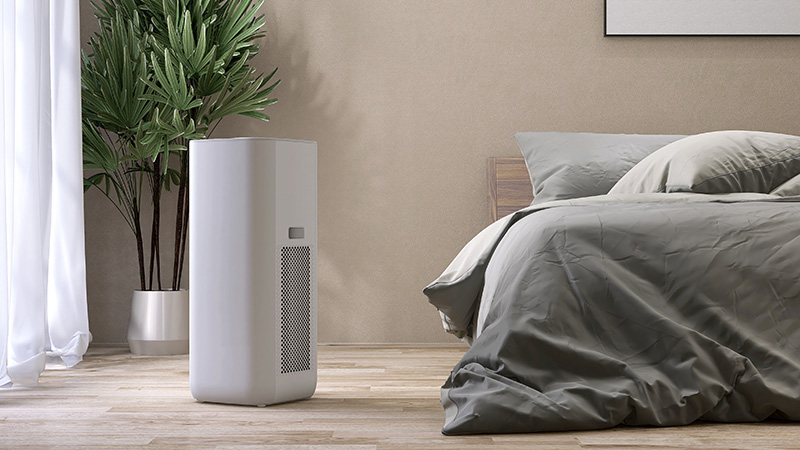Getting a restful night’s sleep is essential for your health and well-being, and the quality of the air you breathe plays a significant role in this.
Achieving a restful night’s sleep is essential for your health and well-being. The quality of the air you breathe plays a significant role in this process. In this blog, we will delve into how indoor air quality can affect your sleep patterns. We also provide strategies to improve your indoor quality for a better night’s sleep.
The Importance of Good Indoor Air Quality for Sleep
Poor indoor air quality can irritate your respiratory system. This can cause coughing, congestion, and discomfort. This can disrupt your ability to fall asleep and stay asleep throughout the night. Common allergens like dust mites, pet dander, and pollen can build up in indoor spaces. This can trigger allergic reactions that interfere with your sleep quality. Imbalanced humidity levels can promote mold growth and dust mites. This can lead to respiratory issues and discomfort that may disturb your sleep cycle. VOCs emitted by household products and building materials can impact indoor air quality. This can cause headaches, dizziness, and respiratory irritation that affect your sleep.
How Indoor Air Quality Impacts Your Sleep
Irritants in the air can lead to congestion and inflammation of the airways. This makes it harder to breathe while sleeping. Allergens present in the air can trigger allergic reactions during sleep. This can cause you to sneeze, itch, and have other symptoms that disrupt your sleep cycle. Poor air quality can contribute to dry skin and irritation. This makes it uncomfortable to rest through the night. Exposure to pollutants in the air can affect cognitive function and mental alertness. This can lead to daytime fatigue and reduced sleep quality.
Improving Indoor Air Quality for Better Sleep
- Regular Ventilation. Ensure adequate ventilation in your home. Open windows, use exhaust fans, make sure your HVAC system is up to date, and maintain proper airflow. These practices can help to reduce indoor air pollutants.
- Air Purification. Consider investing in an air purifier with HEPA filters. These can remove allergens, dust, and other contaminants from the air. They help to promote cleaner indoor air quality.
- Humidity Control. Maintain optimal humidity levels between 30% to 50%. This helps to prevent mold growth and dust mites for a better sleep.
- Cleanliness. Clean and dust your home to reduce allergens and wash bedding often. Keep pets out of bedrooms to reduce allergen exposure.
- Natural Remedies. Incorporate indoor plants known for their air-purifying qualities. Aloe vera, spider plants, or peace lilies can improve indoor air quality.
Contact Us
Creating a sleep-conducive environment starts with good indoor air quality in your home. It’s important to understand the impact that air quality has on your sleep. Be sure to include these strategies to enhance the cleanliness and purity of the air you breathe. If you need help with your indoor air quality, contact us. You can enjoy a more restful and rejuvenating night’s sleep with cleaner indoor air.

